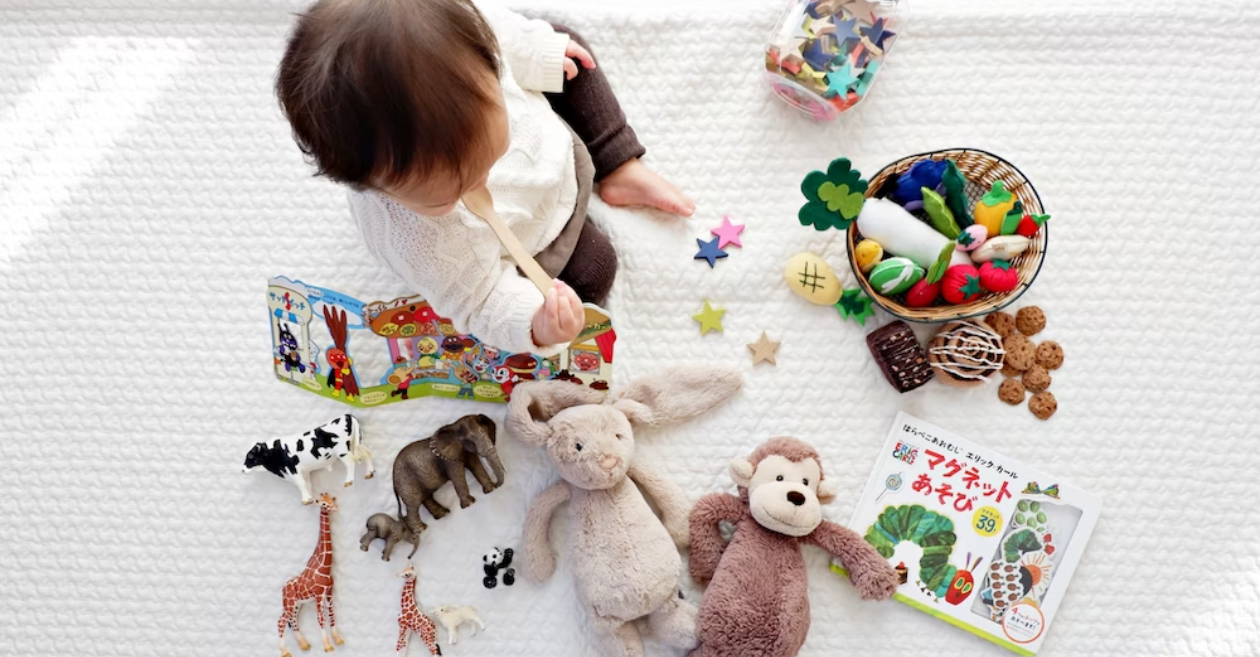


Toys have long been associated with fun and entertainment, but their significance reaches far beyond mere amusement. In fact, toys play a pivotal role in shaping a child's cognitive, social, and emotional development. This blog explores the profound impact of educational toys and sheds light on why they are crucial for a child's growth.
People Also Read: Paul Di'Anno Net Worth Revealed!
Educational toys act as catalysts for cognitive development, helping children achieve crucial milestones. From building blocks that enhance spatial awareness to puzzles that sharpen problem-solving skills, these toys provide a hands-on approach to learning.
Interactive toys, such as those with sound and language components, contribute to language development. Research shows that children exposed to educational toys tend to develop a richer vocabulary and better communication skills compared to their counterparts who rely solely on traditional forms of play.
Toys encourage social interaction, teaching children the importance of cooperation and teamwork. Board games, for instance, instill patience, turn-taking, and the ability to follow rules – essential skills for navigating the social landscape.
Educational toys often focus on emotional development, helping children recognize and understand their feelings. Dolls, action figures, or emotion-centric games allow kids to explore and express a wide range of emotions in a safe and controlled environment.
Educational toys play a pivotal role in fostering interest in Science, Technology, Engineering, and Mathematics (STEM) subjects. Building sets, robotics kits, and science experiments make learning these subjects enjoyable, cultivating a passion for knowledge that extends beyond the classroom.
Many educational toys mimic real-world scenarios, preparing children for practical challenges they may encounter. Role-playing toys, for instance, not only ignite imagination but also provide insights into various professions, fostering an early understanding of the world around them.
Impact of Educational Toys on Academic Performance
| Age Group | Improved Academic Performance (%) |
| 3-5 years | 25% |
| 6-8 years | 18% |
| 9-12 years | 15% |
Comparative Study: Educational vs. Non-Educational Toy Users
| Developmental Aspect | Educational Toy Users (%) | Non-Educational Toy Users (%) |
| Cognitive Skills | 90 | 65 |
| Social Skills | 85 | 50 |
| Emotional Intelligence | 75 | 40 |
Parents play a crucial role in maximizing the educational benefits of toys. Choosing toys that align with a child's developmental stage ensures optimal learning experiences.
A diverse range of toys introduces children to various concepts, perspectives, and skills. Balancing educational toys that focus on different developmental areas ensures a well-rounded learning experience.
In conclusion, the notion of toys merely being sources of entertainment is outdated. Educational toys serve as powerful tools for shaping young minds, providing a holistic approach to learning that encompasses cognitive, social, and emotional aspects. As parents, educators, and caregivers, understanding the educational potential of toys empowers us to make informed choices that positively impact a child's developmental journey. So, let's embrace the educational power of toys and witness the transformative impact they have on the next generation.
Educational toys are essential for a child's development as they actively engage children in learning experiences. These toys stimulate cognitive functions, promote social skills, and contribute to emotional intelligence, laying a strong foundation for future academic and personal success.
Educational toys enhance cognitive development by providing hands-on learning experiences. For example, building blocks and puzzles promote spatial awareness and problem-solving skills, while toys with language components contribute to vocabulary and communication development.
Yes, research indicates a positive correlation between the use of educational toys and improved academic performance. Children exposed to educational toys exhibit higher levels of cognitive and social skills, translating into better academic outcomes across various age groups.
Educational toys encourage cooperative play, teaching children the importance of teamwork, patience, and rule-following. These social interactions contribute to the development of essential interpersonal skills that are crucial for navigating various social environments.
Yes, records and statistics reveal the significant impact of educational toys on various developmental aspects. For instance, a comparative study shows that children using educational toys demonstrate higher percentages of cognitive and social skills compared to those relying on non-educational toys.

J. Robert Oppenheimer is a significan

California State University (CSU) shi

In the middle of the Silver State, yo

Newman University shines brightly in
Trash to treasure: How Google thinks
Spring Fashion Show at the University
Matter of Impact: April updates from
Android Enterprise security delivers
We are not gonna make spamming
Copyright By@TheWebTrends - 2023
BACK TO TOP